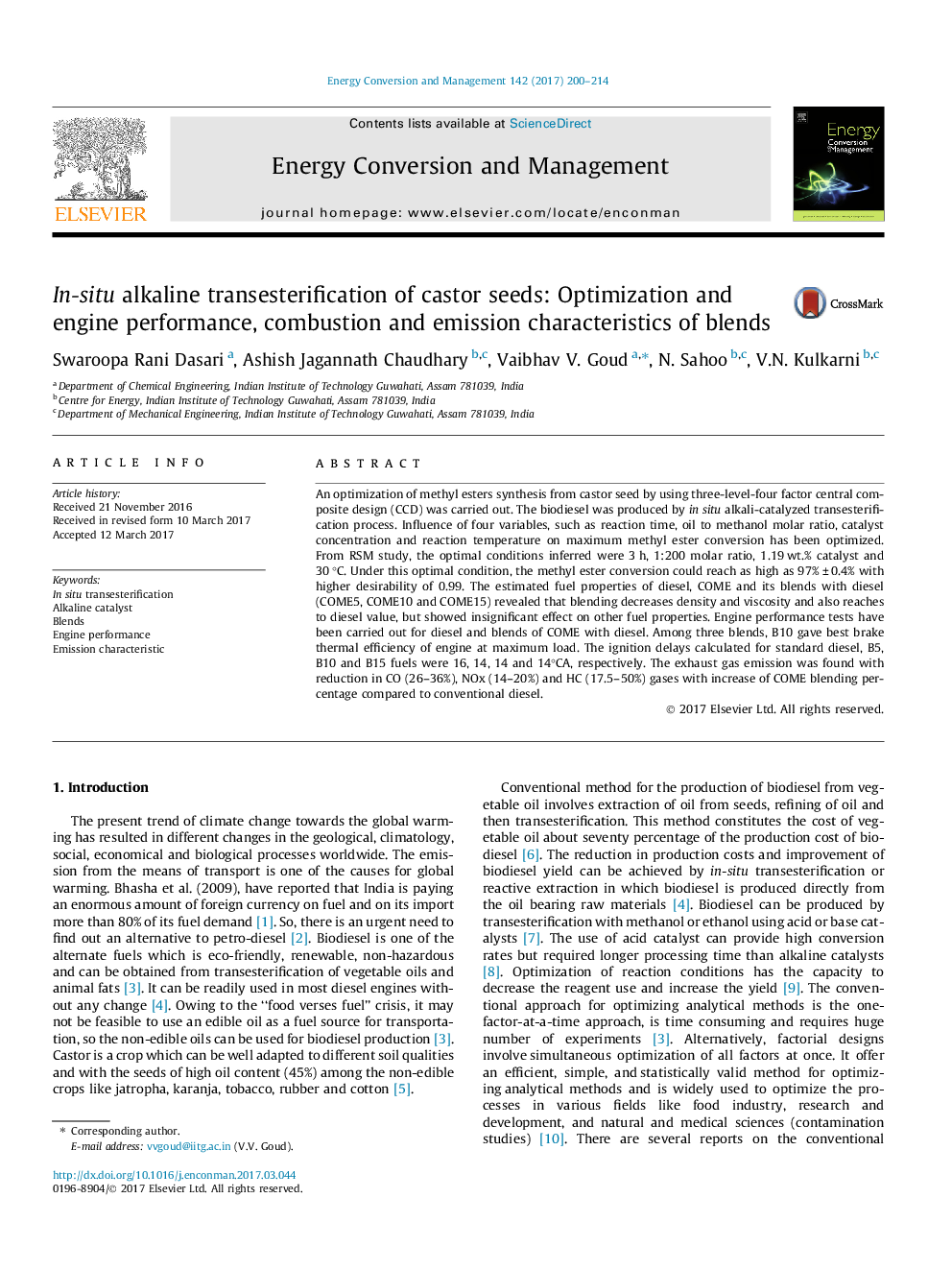| Article ID | Journal | Published Year | Pages | File Type |
|---|---|---|---|---|
| 5012840 | Energy Conversion and Management | 2017 | 15 Pages |
Abstract
An optimization of methyl esters synthesis from castor seed by using three-level-four factor central composite design (CCD) was carried out. The biodiesel was produced by in situ alkali-catalyzed transesterification process. Influence of four variables, such as reaction time, oil to methanol molar ratio, catalyst concentration and reaction temperature on maximum methyl ester conversion has been optimized. From RSM study, the optimal conditions inferred were 3 h, 1:200 molar ratio, 1.19 wt.% catalyst and 30 °C. Under this optimal condition, the methyl ester conversion could reach as high as 97% ± 0.4% with higher desirability of 0.99. The estimated fuel properties of diesel, COME and its blends with diesel (COME5, COME10 and COME15) revealed that blending decreases density and viscosity and also reaches to diesel value, but showed insignificant effect on other fuel properties. Engine performance tests have been carried out for diesel and blends of COME with diesel. Among three blends, B10 gave best brake thermal efficiency of engine at maximum load. The ignition delays calculated for standard diesel, B5, B10 and B15 fuels were 16, 14, 14 and 14°CA, respectively. The exhaust gas emission was found with reduction in CO (26-36%), NOx (14-20%) and HC (17.5-50%) gases with increase of COME blending percentage compared to conventional diesel.
Keywords
Related Topics
Physical Sciences and Engineering
Energy
Energy (General)
Authors
Swaroopa Rani Dasari, Ashish Jagannath Chaudhary, Vaibhav V. Goud, N. Sahoo, V.N. Kulkarni,
